When it comes to free camping, moochdocking and boondocking are the most common options for RV’ers, van-lifers, and car campers. But.. what’s the difference between moochdocking and boondocking??? While the names look similar, there are some differences. Here, we’ll weigh in on moochdocking vs. boondocking; we’ll explain what it is, what it isn’t, and provide some tips for each. By the end, you’ll be on your way to perfecting the art of sleeping for free!
Moochdocking vs. Boondocking
…the etymology of Moochdocking and Boondocking
Let’s break down these two words down for a moment.
Moochdocking → mooch – docking
We all know what a mooch is, and I’m sure you can think of a mooch or two right now. Moochers are takers, freeloaders, and non-contributors – Someone who always wants something for free and will never return the favor. It’s a word that carries a strong negative connotation. However, one of these definitions sticks out when thinking about free camping: someone who stays for free with a relative or friend, and sometimes… outstays their welcome. Don’t be that person, though!
Boondocking → boon – docking
In the United States, boon is short for boonies, a word used to describe a location in the middle of nowhere, in the sticks, or the wilderness. A place far from the comforts of the modern world; no electricity, no running water, no bathrooms, no restaurants, and no stores – isolation far from civilization. Free camping and the boonies go together like peas and carrots!
The second half of both these words, docking, seems out of place. Boats are docked. Rv’s and campers… well, they park. Right? Well… after some research, I uncovered the actual origin of the word boondock, as opposed to our colloquial one I initially assumed. It turns out boondock actually comes from the Filipino word bundok, which translates to mountain or wilderness. It’s origins in the American English vernacular date back to 1898! Crazy! And here I was thinking it was a wholly American creation.
Free Camping | Boondocking
What boondocking is…
Boondocking is overnight camping that is free of charge AND does not include access to amenities such as water spigots, power, or restroom facilities. It’s roughing it! Spending a night in a Walmart parking lot, a rest stop, or any other roadside turnoff also qualifies as boondocking. Even though some rest stops have restrooms, we still count them. The most common places to find boondock camp spots are on BLM land and in the National Forest.
What boondocking isn’t…
- If you have to call ahead or reserve your spot online before showing up, it’s not boondocking.
- If you have to pay for your camp spot in any way, that is not boondocking. (I have read where some people do.)
- If there’s a place to connect your RV, van, or travel trailer to power and/or water, it is not boondocking.
- If you’re parked and staying at a relative or friend’s home, it is not boondocking.
Tips for Boondocking
The first and most important tip for boondocking is to be smart and safe. Not every open patch of ground is a viable boondock spot. Understand the difference between public and private land. Be aware of the boundaries! We use the app GaiaGPS to help us identify public land available for boondocking. As a general rule, most public land allows dispersed (free) camping for up to 14-Days. However, not all areas are open for camping, and some regulations vary from place to place. Always check the BLM and/or USFS websites for an area’s rules and regulations.
When sleeping in a rest stop, try to park as far from the truckers as possible. They leave those loud diesel engines on all night long. If your rig is small enough, you can stay to the car-friendly side of the rest stop because it’s quieter.
Walmart, Cracker Barrel, Costco, Cabela’s / Bass Pro Shops, and most Casinos allow travelers to stay overnight in their parking lots for free. As a courtesy, always speak with a manager to make sure it is okay.
If you’re boondocking for an extended period of time, be prepared! Make sure you bring an adequate amount of water, food, and power. Also, always bring a tool kit!! If you’re really out in the boonies, you’ll only have yourself to rely on if something goes wrong!
Let someone know where you are! Always share your travel plans with a friend or relative. The world is a crazy place, and if something happens, your best chance of help/rescue is someone knowing where you were!
Free Camping | Moochdocking
What moochdocking is…
Moochdocking is simply free overnight camping at a relative’s or friend’s place. Staying in a friend’s driveway, parking in front of a relatives house, setting up camp next to grandpas barn, or staying on an uncle’s land is moochdocking at it’s finest. Sometimes a moochdock spot will include access to water, power, bathrooms, showers, bbq, kitchen, and maybe even a laundromat. You’ve probably moochdocked before, possibly many times, but never knew there was a name for it!
What moochdocking isn’t…
- If you’re staying somewhere for “free” but are expected to exchange work or any other expertise for the right to stay there, it is not moochdocking.
- Long term living out of your RV while it’s parked at a relative’s house isn’t moochdocking… that’s just being a mooch!
- Staying overnight on private property because you found an open gate isn’t moochdocking. That’s just trespassing, and it’s illegal!
Tips for Moochdocking
Never show up unexpectedly or unannounced! It’s rude, and no one appreciates that kind of surprise. Always call in advance to ask if you’re welcome to stay.
If your host offers access to a spigot for water and/or an electricity outlet, be gracious and courteous. Don’t overdo it on the water just because you’re connected. When connecting to a household outlet, make sure you understand your rigs power draw. It’s unlikely your host will have a 20 or 30 Amp power service for you to use. That means no AC and possibly no microwave. If you’re not careful, you can burn something up in your RV or, even worse, cause damage to your host’s home.
DON’T OVERSTAY YOUR WELCOME! Although it’s called moochdocking, that doesn’t mean you have the right to be an actual mooch. Our rule is never stay more than three days without reassessing the situation. Talk to your host, let them know you don’t want to be a burden. If they’re persistent about you staying longer, only then is it okay to consider doing so.
Do not expect your host to be a tour guide, laundry mat, short-order cook, or any other service you should be doing for yourself. Having those expectations makes you a mooch.
Be an observant guest! If you see your host working on something, offer help. Better yet, assess what they’re doing and find a way to help without having to ask. Taking out the trash or picking up the mail are easy ideas.
When it comes time to leave – clean up after yourself! Make sure there’s no trash anywhere. If you borrowed anything, make sure YOU put back where it came from. Before pulling away, check your area one last time. Leave it better!
Above all, be GRACIOUS, respectful, and courteous! You want to be invited back don’t you?!?
There you have it – free camping, the difference between moochdocking and boondocking. One provides the allure of privacy and solitude and, on the other, an opportunity to visit with family and friends. Moochdocking isn’t something you can rely on all the time unless you know a lot of people, that is. But we always seize the opportunity to moochdock when it’s available. It’s still an unpredictable experience, and we love to mix in some time with people we love!
Did we miss something? Let us know your thoughts on moochdocking vs. boondocking! Have any good stories to share? If this was helpful, leave us a note in the comments below. It’s the best way to say thank you! 🙂

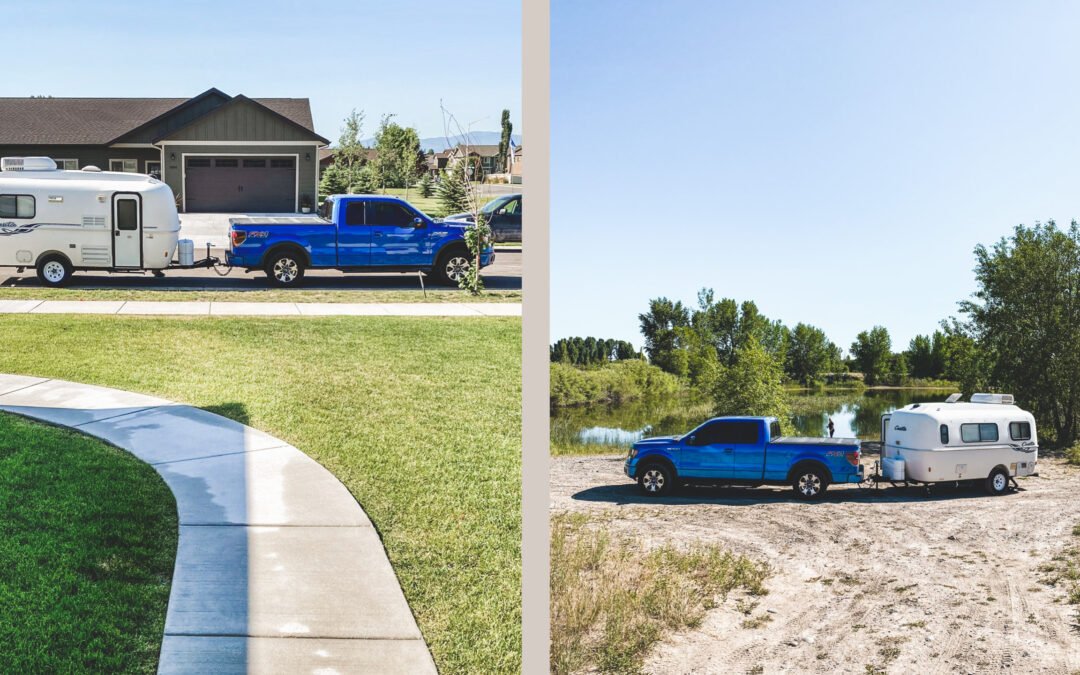
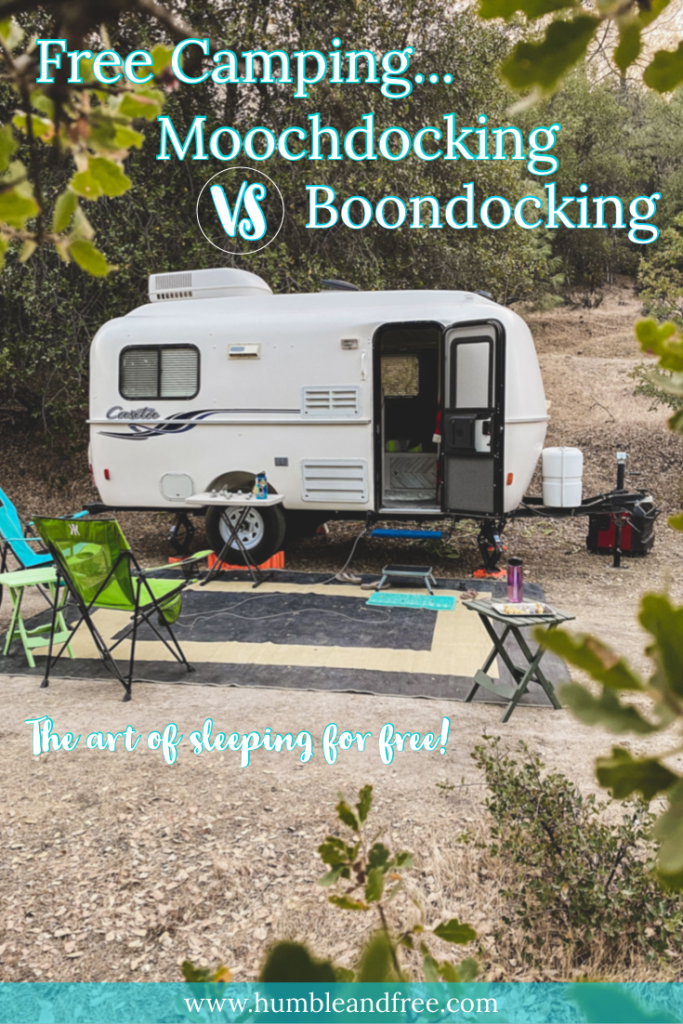
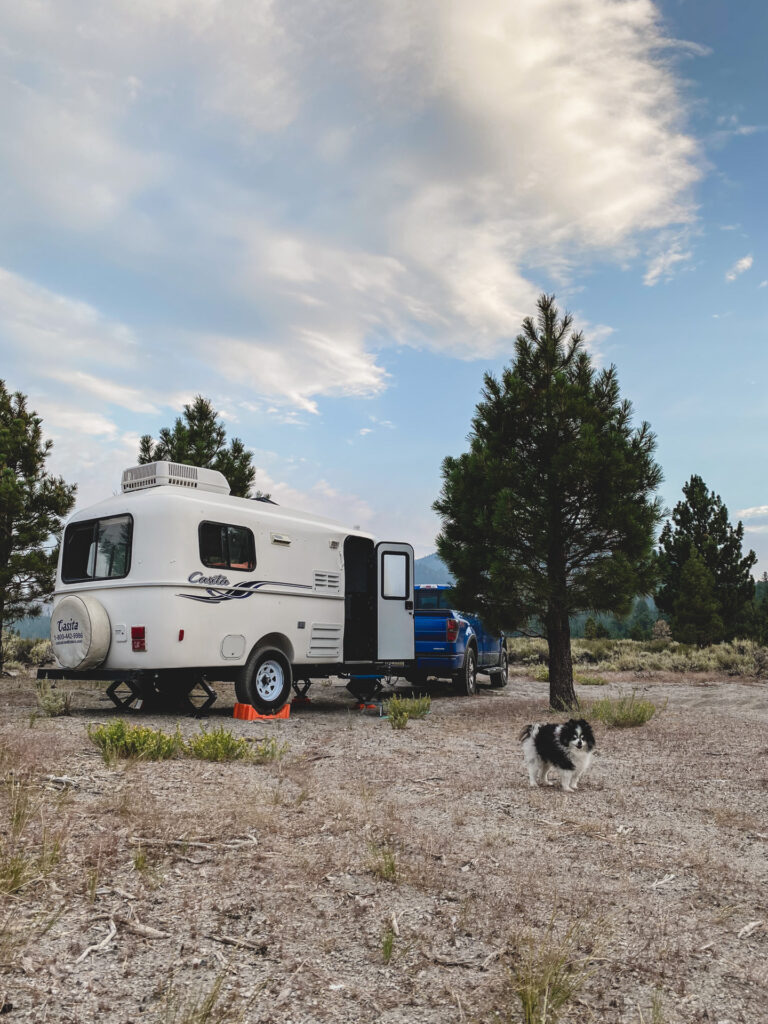
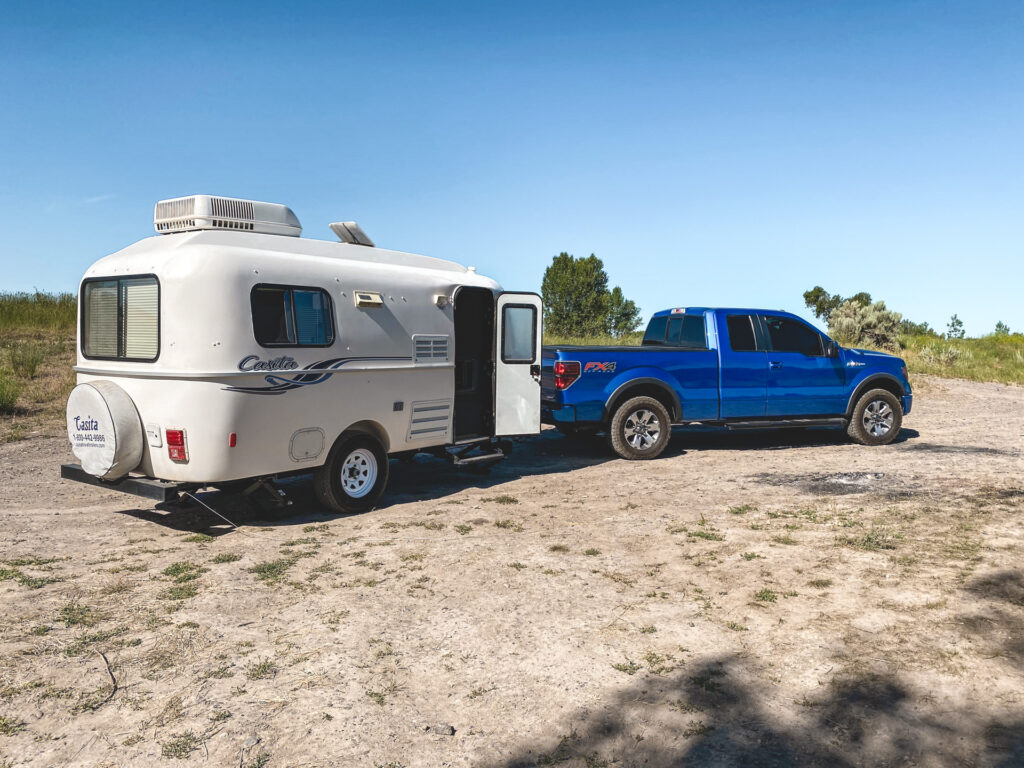
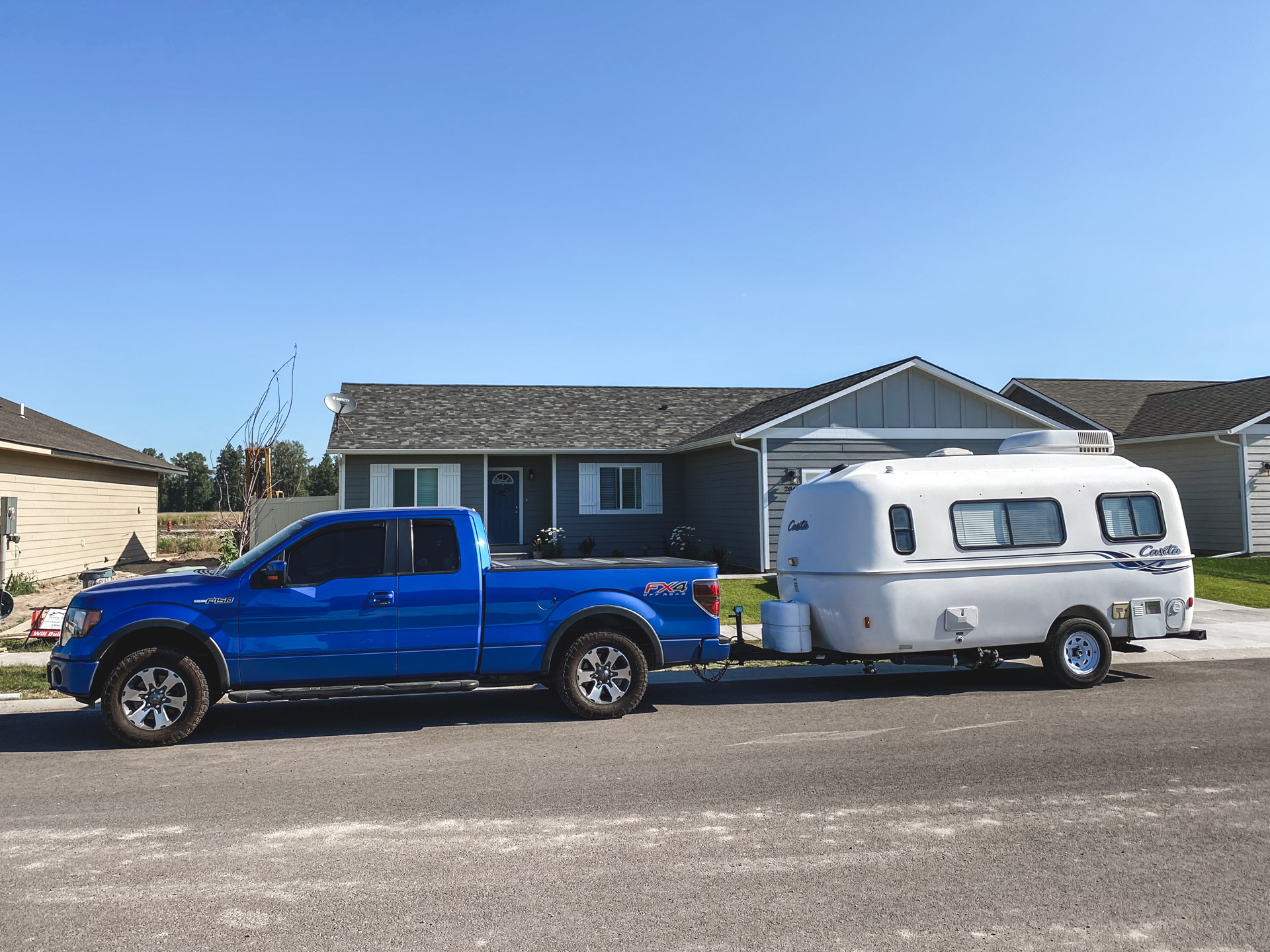
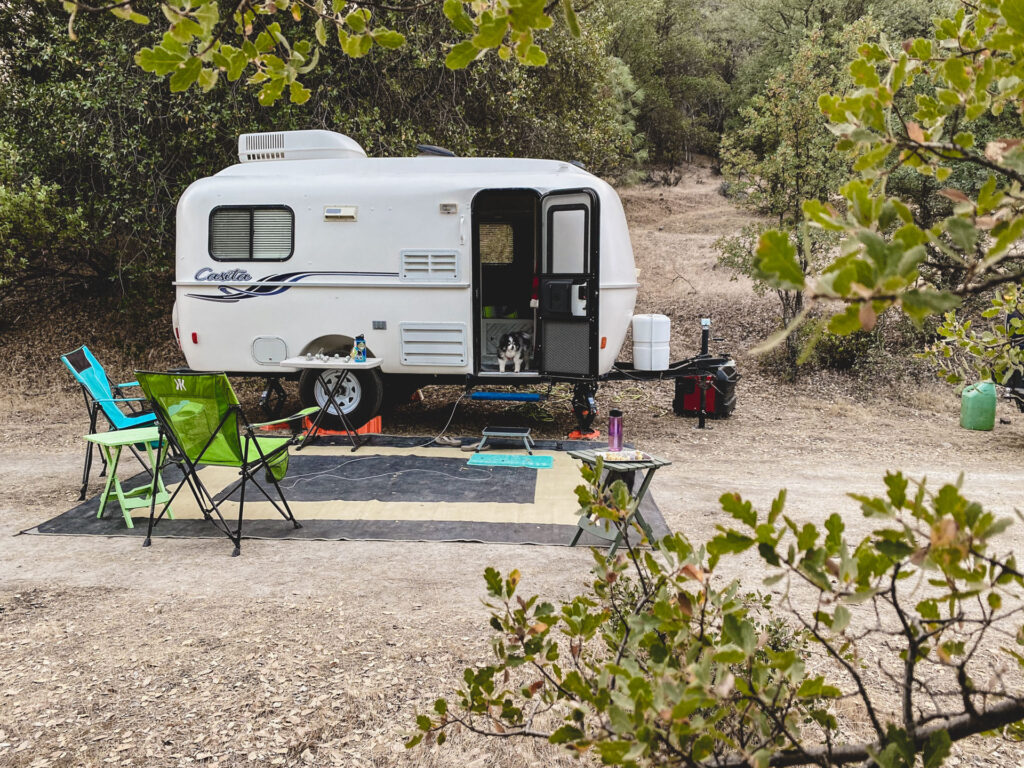
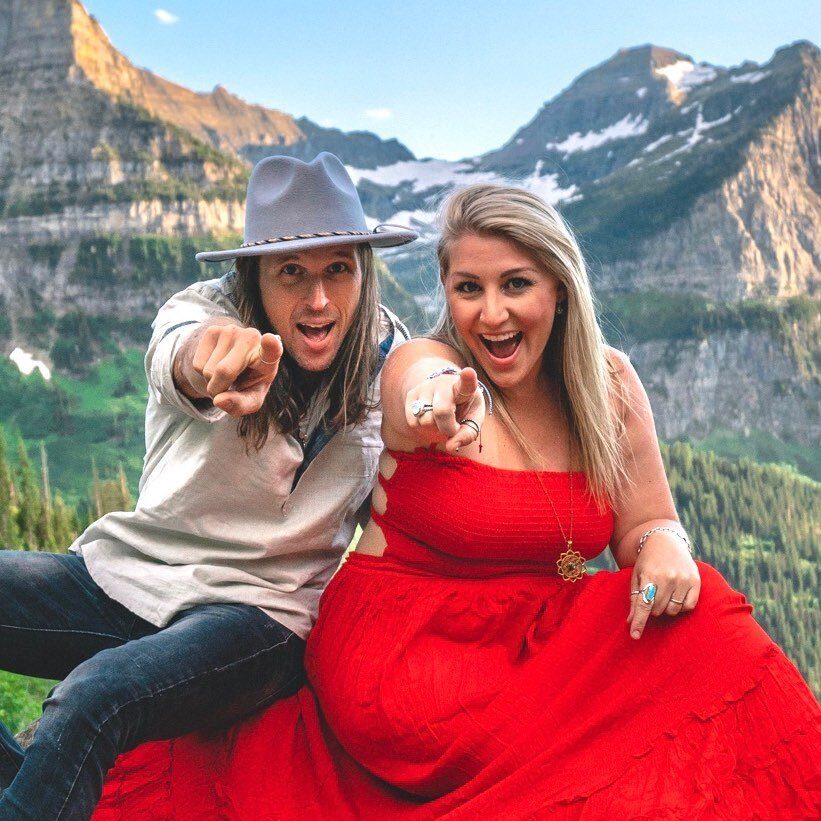

Once again….EXCEPTIONAL article.. extremely useful information for anyone with an RV.
Love all the tips, especially for the MOOCHDOCKER!!
Thank you so much!